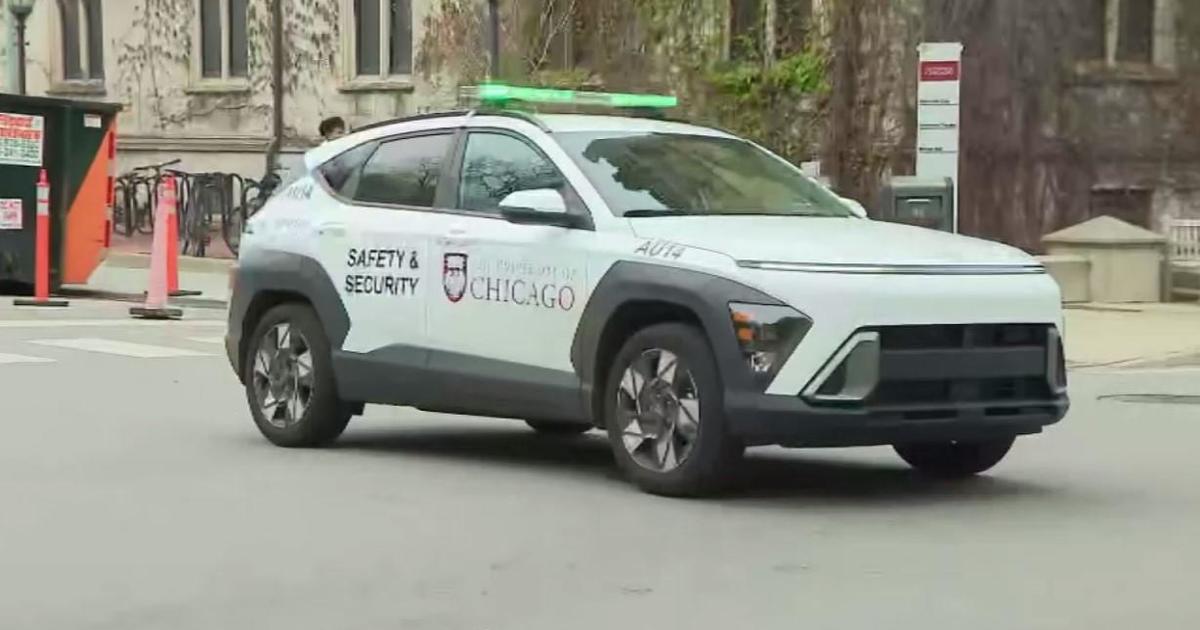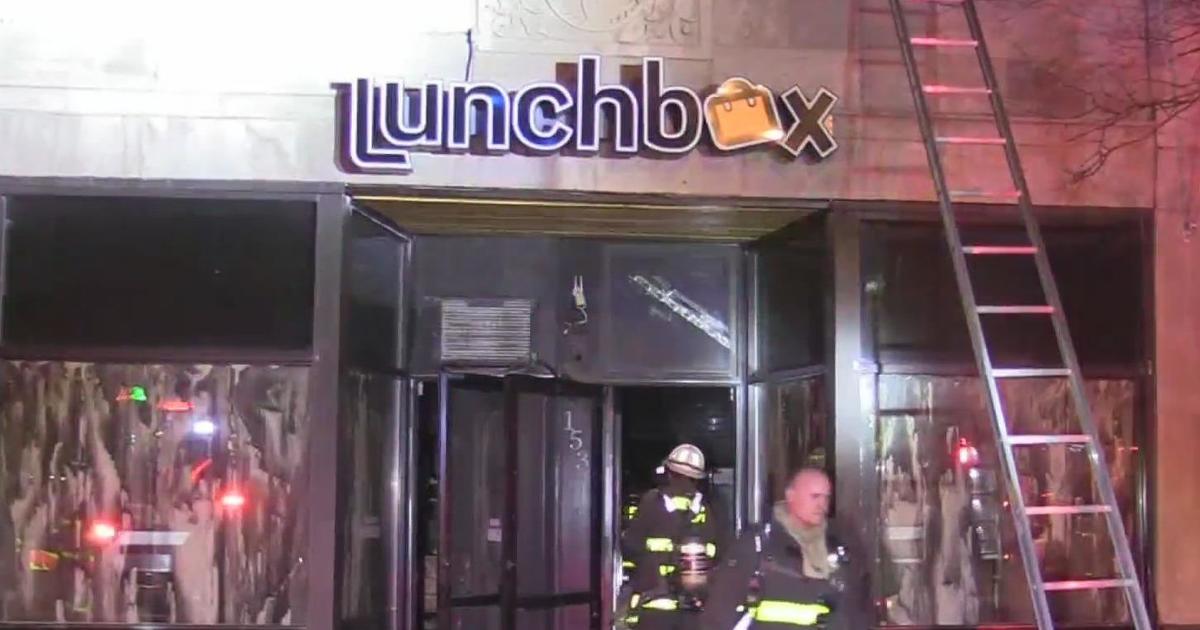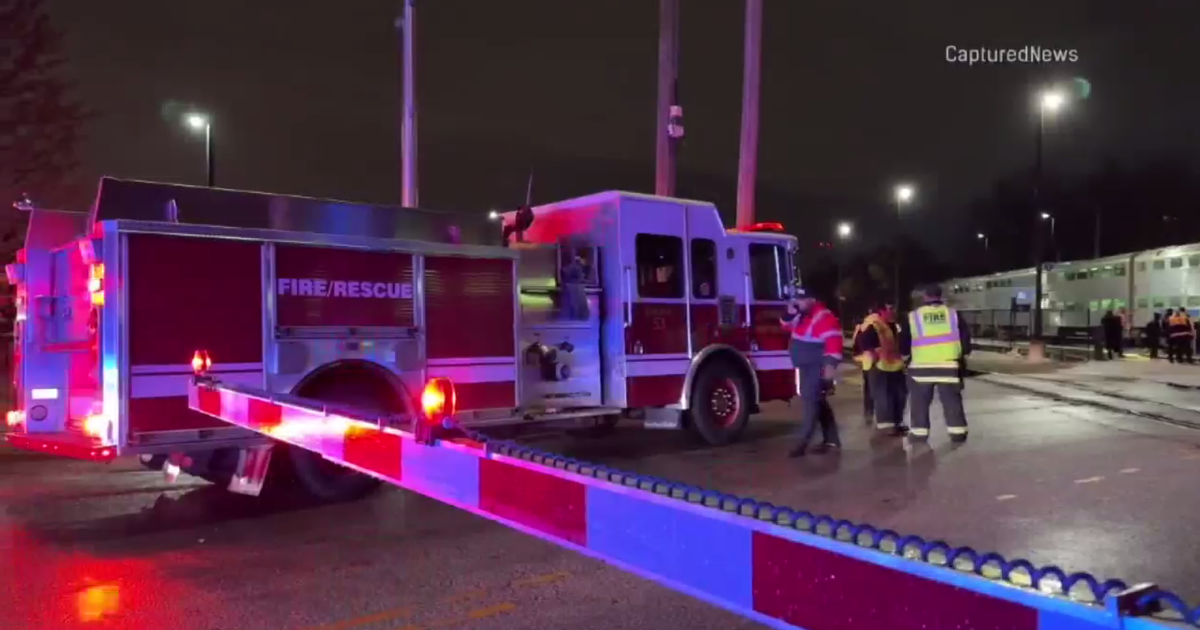La Grange School District 105 Set To Implement Voluntary COVID-19 Screening Program For All Students
LA GRANGE, Ill. (CBS) -- St. Viator High School in Arlington Heights and New Trier High School in Northfield and Winnetka recently forced close because of surging COVID-19 cases.
Now, another suburban district is making plans to prevent that kind of shutdown – implementing COVID-19 screening for all students.
MORE FROM CBS CHICAGO
- Stimulus Package Update: What Happens To The Economy Without A Second Stimulus?
- 2 Shot, Killed Outside Menards In Dolton
- Man Seen Sexually Abusing 7-Year-Old Girl On South Side During Remote Learning, Police Say
As CBS 2's Tara Molina reported Thursday night, La Grange School District 105 is not changing its in-school learning plans yet – it will stay on its hybrid model with part remote learning and part in school.
But the hope is these voluntary saliva screeners can keep students in the classroom - with other districts being forced out.
"It's pretty basic," said District 105 Supt. Brian Ganan.
Indeed, the test doesn't look like much. It's just an envelope, a plastic straw, and a collection tube.
"I heard drooling works the best," Ganan said. "They'll either spit or drool into it."
But this little saliva screening kit could be a game changer for schools, according to Ganan.
"We do think this will help keep us open and that's our goal," he said.
The district is starting its voluntary screening program this weekend. Ganan calls it an effort to keep students, teachers, and district families safe.
"Everybody who volunteers will test once a week," Ganan said.
We found each one of these costs the district around $7. District 105 was able to move money around to cover costs, with some help from state funding.
And while they have a similar look to the mandatory tests being used at University of Illinois, these are not diagnostic tests, only screenings.
We're told they can identify students who are possibly infectious in just four hours, those students will have to follow-up with a COVID-19 test while the district contact traces.
[scribd id=480265179 key=key-q92opJNksL0yRxZNTF7V mode=scroll]
It is something he said will be important after Thanksgiving and winter break.
"Really important to screen those students as they come back," Ganan said.
Ganan said the district needs a majority of its students to choose to participate for the program to be effective.
A couple days from the official start, he said he thinks they'll get there - and that this test could help more than just this district.
"To keep kids in school, but also, and more importantly, to keep kids, staff, and communities safe," Ganan said.
Nearby La Grange Elementary School District 102 is already running something very similar. Molina is told they've had no false positives so far and they're already talking to districts across the country about starting up similar screening programs.
The District 102 plan was developed under the guidance of district board member and microbiologist Dr. Edward Campbell, and has been in place since late August. He explained it by email:
"The test we have implemented in D102 is a fusion of similar tests developed by David and Shelby O'Connor and University of Wisconsin Madison and Nick Myerson and Sara Sawyer at the University of Colorado. The test is called an RT-LAMP test, which is analogous to a PCR test, but cheaper and faster. It is also less sensitive than a PCR test, but as PCR tests are known to detect very small amounts of virus in individuals that are not considered to be infectious, we think this is an advantage in the context of a surveillance screen of this type. We really want to isolate the infectious individuals, and this test seems ideally suited to do that.
"When we implemented testing in our district, we identified one participant before school opened that was asymptomatic to the best of my knowledge and did not enter the classroom setting. The individual was subsequently confirmed by a diagnostic test as infected.
"All individuals we have identified thus far have been confirmed by a diagnostic test. Over 8500 tests into our program at 102, we have 0 false positives, which is pretty amazing. I would have never guessed that to be the case when we started, but the changes we have made to the test seem to have been very effective in this regard.
"To date, I have been contacted by individuals from around the country, from the Bay Area to Maryland, and I am also working with a group of volunteer scientists, headed by Kevin Schallert in California, to help them deploy similar testing in their districts."






